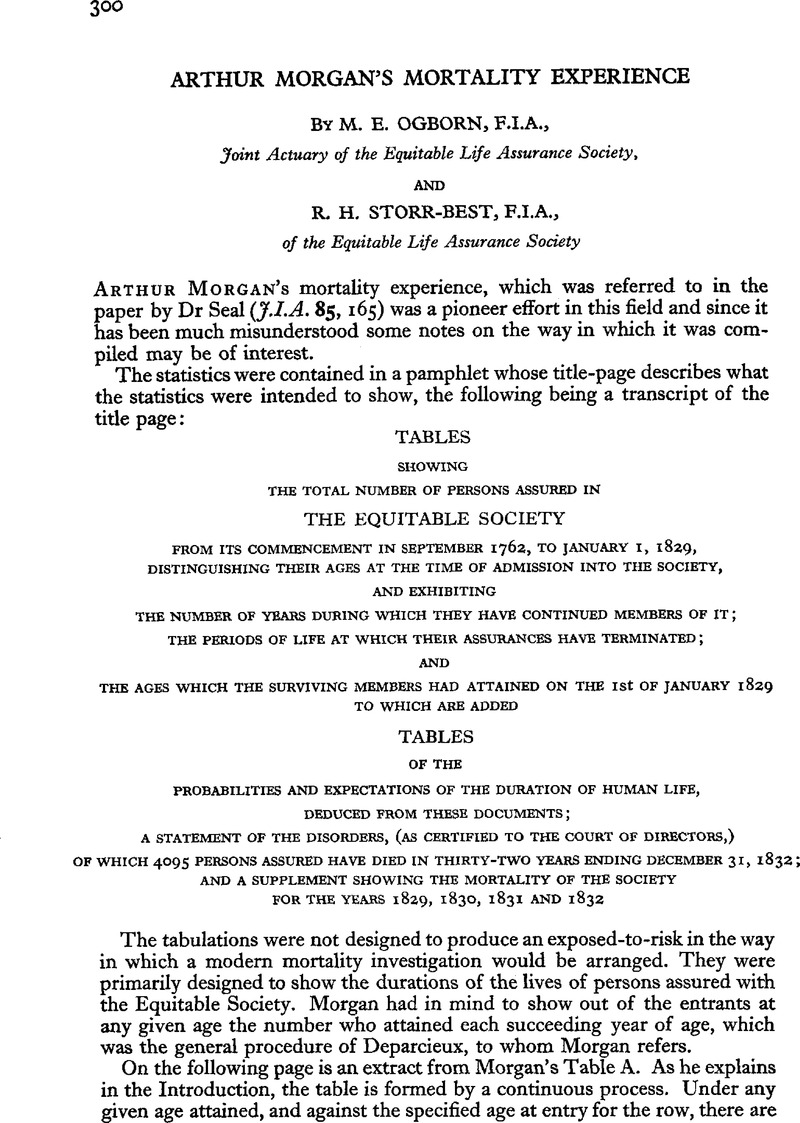No CrossRef data available.
Article contents
Arthur Morgan's Mortality Experience
Published online by Cambridge University Press: 18 August 2016
Abstract
An abstract is not available for this content so a preview has been provided. Please use the Get access link above for information on how to access this content.

- Type
- Other
- Information
- Copyright
- Copyright © Institute and Faculty of Actuaries 1959
References
Morgan, Arthur (1834). Tables showing the total number of persons assured in the Equitable Society from its commencement in September 1762, to January 1, 1829.…Google Scholar
Edmonds, T. R. (1837). On the influence of age and selection on the mortality of the members of the Equitable Life Insurance Society during a period of sixty-seven years ending in 1829. The Lancet, a letter dated 21 October 1837.CrossRefGoogle Scholar
Spens, W. (1861). Observations… presenting … tables of the mortality experience of that (the Scottish Amicable Life Assurance) Society from 1826 to 1860. J.I.A.
10, 61.Google Scholar
Chatham, James (1890). An examination of the published experience of several life offices and groups of life offices…. J.I.A.
29, 81.Google Scholar
Manly, H. W. An account of the mortality experiences of the Equitable Life Assurance Society and of the tables deduced therefrom. (Manuscript, never published.)Google Scholar
Manly, H. W. (1912). A comparison between the mortality experience of the Equitable Society at the beginning and end of the nineteenth century. Trans. Seventh Int. Congr. Act.
I, 557.Google Scholar
Elderton, W. P. & Ogborn, M. E. (1943). The mortality of adult males since the middle of the eighteenth century as shown by the experience of life assurance companies. J.R.S.S.
106, 1.Google Scholar


